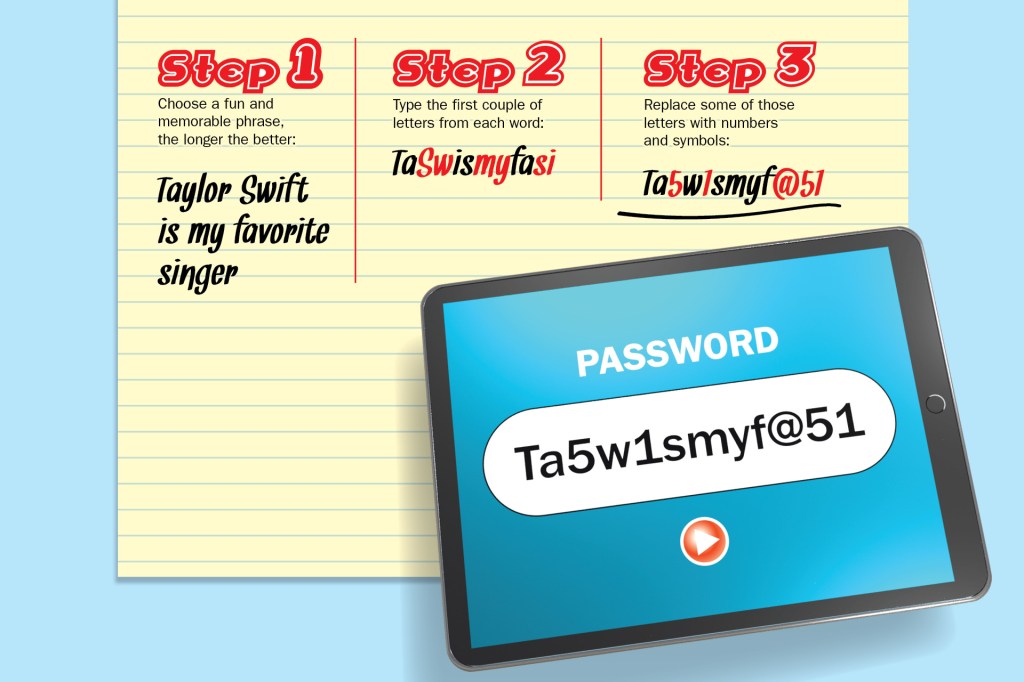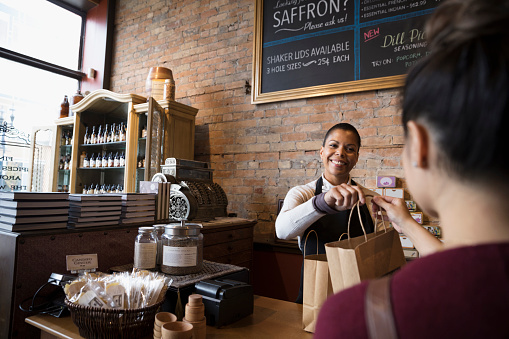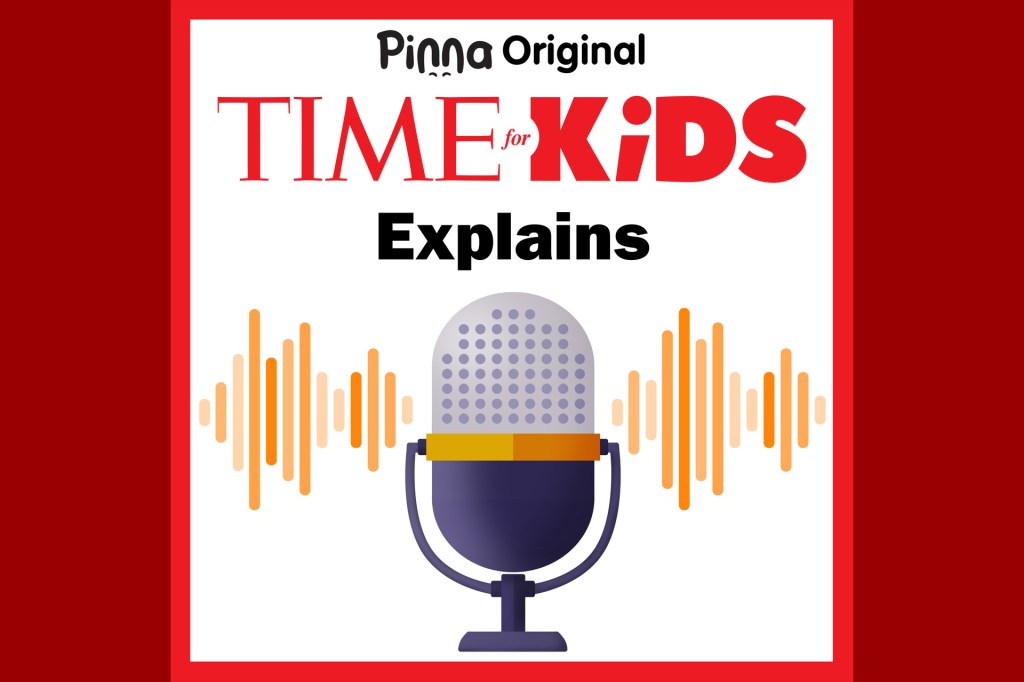What's the Password?

In an ancient folktale, a giant rock blocks the entrance to a cave filled with treasure. A door appears only for those who speak a secret phrase aloud: “Open, sesame!” This is an early example of a password.
Passwords have changed since then. Now they safeguard
safeguard
 WESTEND61—GETTY IMAGES
to protect
(verb)
Regular exercise is a good safeguard against obesity.
digital treasures, such as pictures, messages, and documents. But the reason the phrases exist is still the same: to keep the wrong people out.
WESTEND61—GETTY IMAGES
to protect
(verb)
Regular exercise is a good safeguard against obesity.
digital treasures, such as pictures, messages, and documents. But the reason the phrases exist is still the same: to keep the wrong people out.
In the digital world, these “wrong people” are called hackers. And when they can figure out a person’s password, they can access private information. This allows them to play pranks, such as posting that information online. Even worse, the hackers might use the information to commit crimes.
What Not To Do
Jessica Covarrubias works as the education-program lead at Google. Her team designs lessons and games that teach students about Internet security.
Covarrubias says there are passwords to avoid if you want to be safe online. “The most popularly used passwords are password and 123456,” she told TFK. These are the first guesses hackers will make.
According to Covarrubias, hackers will then try to use public information about a potential target. This may include a birthday or a pet’s name. Hackers type this information into computer programs that can guess the target’s passwords.
Security Matters
One of the best ways kids can keep their information secure is by thinking up strong passwords. So how can you invent a password that’s easy for you to remember but hard for someone else to guess?
“Think of a fun phrase,” advises Covarrubias, such as a lyric from a favorite song, or the title of a book or movie. It’s best if the phrase is relevant to your life, she adds, because you’ll be less likely to forget it. Then, says Covarrubias, “take the first letter or first couple of letters from each word in that phrase, and begin switching those letters to symbols or numbers.” Use both uppercase and lowercase letters to make the password even trickier to crack.
Covarrubias herself has benefited from making her passwords stronger. “For a long time, my password was a city and state and a symbol,” she says. “No wonder my information was hacked a couple of times. Now I’m getting savvier
savvier
 HERO IMAGES/GETTY IMAGES
showing better judgment and more common sense
(adjective)
Since opening her own store, Cheryl has become savvier in business.
.”
HERO IMAGES/GETTY IMAGES
showing better judgment and more common sense
(adjective)
Since opening her own store, Cheryl has become savvier in business.
.”










